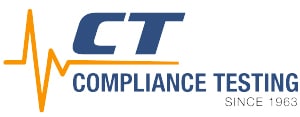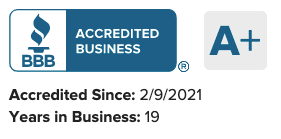Get Free Help From Our Engineers With FCC Certification
Need help achieving FCC certification? We work with businesses and individuals worldwide, including in the United Arab Emirates, to achieve FCC certification for electronic devices.
Click the “Talk to Our Team” button or call us on 866-540-5287 to ask our engineers your question about FCC certification, or request a free quote for testing and achieving FCC certification for your device.

If you plan to sell or manufacture an electronic device in the US, it’s important to secure official authorization from the Federal Communications Commission (FCC).
The FCC provides specific regulations for electronic and digital devices marketed in the United States. These regulations are designed to prevent radio frequency interference between digital devices and ensure that approved products are safe for consumers to use.
The FCC has clear guidelines that apply to digital devices capable of producing radiofrequency emissions. However, not all electronic products sold in the United States are required to comply with FCC regulations, and the specific guidelines can vary from product to product.
Before you submit your product for authorization or certification, it’s important to understand which types of goods require the official seal of FCC certification, as well as which may be subject to less stringent or intensive regulations and testing processes.
Below, we’ve explained what types of devices require approval from the FCC to be sold in the United States, as well as how FCC requirements can differ based on product class.
We’ve also explained how the FCC approval process works, including the steps you’ll need to take to ensure your device is compliant.
If you have any questions about the FCC’s approval process, or if you’d like to request a quote for testing your device, contact us online or call our team on 866-540-5287.
How Does FCC Authorization & Certification Work?
The FCC approval process is designed to ensure that electronic, digital and wireless devices sold in the United States aren’t able to interfere with radio frequency (RF) communications or pose safety risks for consumers.
The main aspect of this process is restricting a device’s RF emissions. The FCC sets specific limits for devices that can emit radio signals, referred to as radio frequency devices. The limits from the FCC vary based on the environment in which the device will be used.
They’re also based on the type of radio frequency that a product emits. Most devices that can emit radio spectrum frequencies are required to undergo lab-based testing in order to comply with the FCC’s standards.
If your device stays within the radio frequency limits imposed by the Federal Communications Commission, it will receive FCC approval and certification.
This type of testing is carried out by an accredited lab. If a device fails testing (for example, its emissions are above the FCC’s limits), the manufacturer will need to make design changes to the device before sending it to a lab for further testing.
Devices are classified as Class A or Class B by the FCC based on their intended use. Devices intended for commercial and/or industrial use are typically Class A devices, while devices that are designed for use in a residential setting are regulated as Class B devices.
Because of the greater risk of issues from RF emissions in a residential setting — for example, changes in radio or television reception — the FCC’s standards for Class B devices are stricter than for Class A devices. Our guide to the differences between FCC Class A and Class B goes into greater detail about the different standards applied by the FCC to these product categories.
When is FCC Certification Required?
Not all electronic products require certification from the FCC. The FCC’s regulations focus on devices that emit radio frequency radiation. This focus on RF radiation ensures that electronic devices won’t pose a safety risk of interrupt radio communications.
Devices are primarily categorized as intentional or unintentional radiators by the FCC:
- Intentional radiators are products that are designed specifically to emit RF radiation as part of their core functionality. For example, a Wi-Fi router, Bluetooth device, or phone are all intentional radiators under the standards of the FCC.
- Unintentional radiators are any products that emit RF radiation as a byproduct of their normal function, but aren’t designed specifically to emit RF radiation. Computers, TVs and electric motor devices can unintentionally produce radio frequency emissions.
As mentioned above, the FCC also classifies devices that can emit RF radiation — whether it’s intentional or unintentional — as Class A (commercial/industrial) or Class B (residential) based on their intended purpose.
Do You Need FCC Certification?
Devices that fit into the above categories and classes are required to undergo testing and get certification from the FCC in order to be sold in the United States.
Below is a list of common electronic items that generally need FCC certification:
- Computers and peripherals
- Power adapters
- Bluetooth devices
- Electromagnetic compatibility products
- Remote control transmitters
- IT equipment
- Wireless local area networking equipment
- Radio and telecommunications terminal equipment
- Land mobile radio transmitters
- Garage doors/garage door openers
FCC Testing Requirements & Authorization Process Steps
Before you submit your product for authorization by the FCC, you’ll first need to ensure that its radio frequency emissions are within the FCC’s prescribed limits. This means working with an accredited testing lab to verify that your device meets all relevant FCC testing requirements under the FCC Part 15 rules (or FCC Part 18, if it’s an industrial, scientific or medical device).
As specialists in FCC testing, we can test your product in our accredited lab to make sure it fully complies with all FCC regulations for radio frequency emissions. We can also explain the specific tests that need to be performed based on your device’s type and intended purpose.
Ensuring your device is within the FCC’s limits before you seek certification reduces your risk of experiencing disruptions or costly issues throughout the process.
To formalize your intent for FCC certification, you’ll need to obtain an FCC Registration Number (FRN). This requires you to register your contact data and business address with the FCC.
After receiving an FRN, you can contact a Telecommunication Certification Body (TCB) and get started on the external testing process for your device.
Following FCC testing, there are two methods through which your device can receive approval from the FCC.
In certain cases, the TCB itself can grant certification. In others, a Declaration of Conformity (a legal self-declaration that your device meets all FCC requirements) may be sufficient to ensure your product is compliant.
You’ll then receive a Grant of Equipment Authorization (GEA), which allows you to legally sell your product in the United States.
Contact Us to Get FCC Authorization for Your Device
The FCC approval process can seem overwhelming, especially if you’re manufacturing a digital device or other electronic product for the first time. Navigating the many steps can be stressful, time-consuming and costly for your business.
As specialists in FCC testing, compliance and approval, we know the ins and outs of receiving FCC approval and have helped hundreds of manufacturers comply with regulations and bring their products to market.
To learn more about the approval process, ask a question to our team, or request a quote for your product, contact us online or call our team on 866-540-5287.
Request a Free Quote From Our Team
Please enter your name, contact information, and any information about your device and the type of testing you need into the form below. Our team of engineers and compliance specialists will contact you as soon as possible with a free quote for your project.





